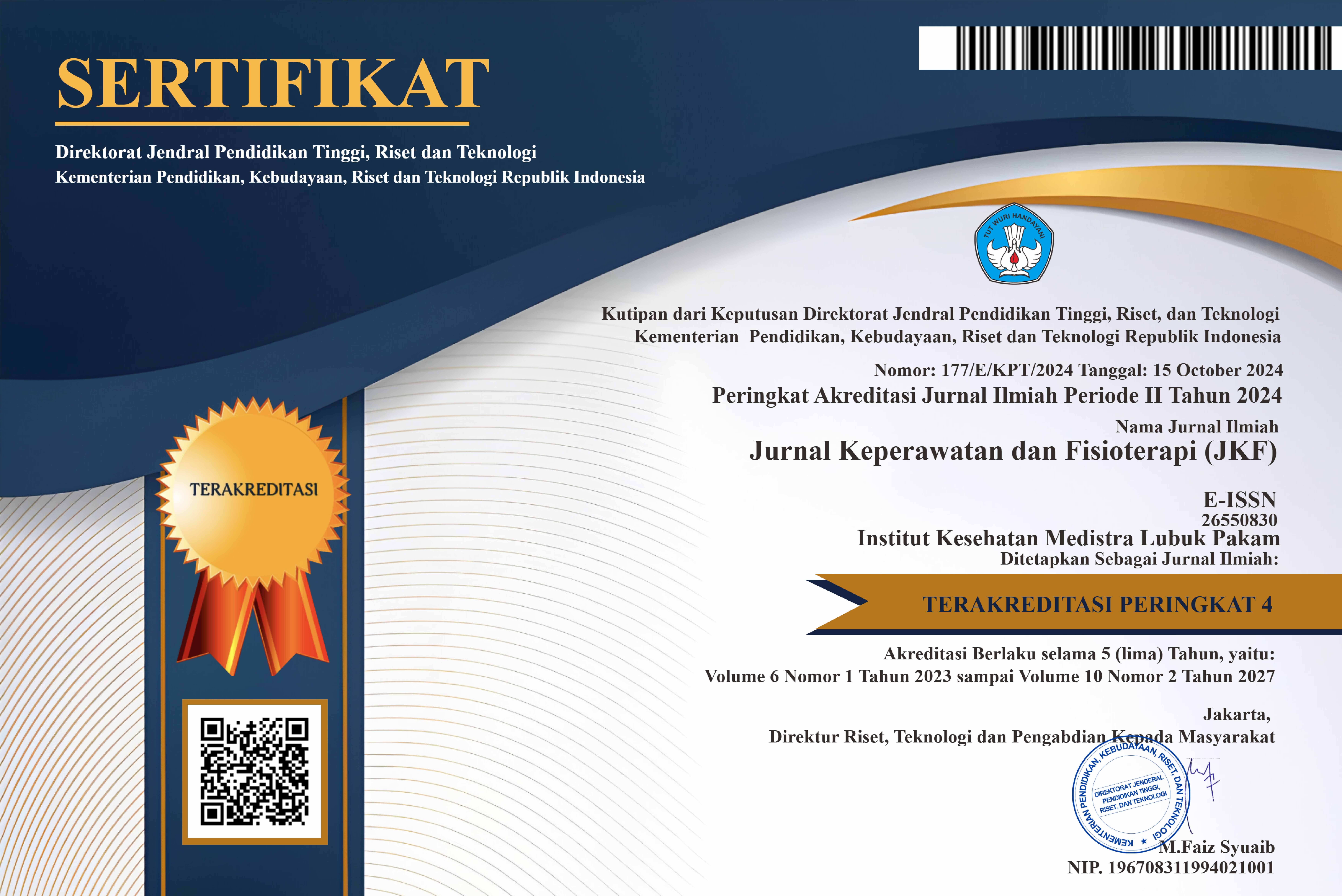The Implementation and Challenges of the Triage System in Managing Catastrophic Disease Emergencies in Hospitals
Implementation and Challenges of the Triage System in Managing Catastrophic Disease Emergencies in Hospitals
DOI:
https://doi.org/10.35451/jkf.v6i1.2555Keywords:
triage system;emergency;catastrophic illness; hospital management.Abstract
Emergency management of catastrophic illnesses in hospitals requires an effective and efficient triage system to ensure that critically ill patients receive prompt and appropriate care. This article discusses the implementation and challenges faced in implementing a triage system in a hospital environment. This study used a qualitative method with data collection through in-depth interviews, observations, and literature studies. The results showed that, although the triage system has been successful in improving the response to emergencies, there are several challenges that need to be addressed, including limited resources, lack of adequate training for medical personnel, and communication gaps between departments. Recommendations for improvement include increasing staff training, providing additional resources, and developing better communication protocols. This study is expected to provide insights for policy makers and medical practitioners in improving the quality of emergency management of catastrophic illnesses in hospitals.
Downloads
References
Barclay, W. H., et al. (2019). Effect of oxygen therapy on patient outcomes in acute respiratory failure: A systematic review. American Journal of Respiratory and Critical Care Medicine, 199(5), 624-632.
Bates, S. W., et al. (2021). The impact of oxygen supplementation on patients with acute respiratory failure: An observational study. Journal of Intensive Care Medicine, 36(9), 1150-1156.
Hodgson, C. L., et al. (2020). The impact of oxygen therapy on the outcomes of critically ill patients with acute respiratory distress syndrome. Journal of Critical Care, 58, 23-29.
Jelinek, G. A., et al. (2020). Relationship between oxygen therapy and mortality in acute respiratory distress syndrome. Critical Care Medicine, 48(8), 1234-1240.
Kallapur, S. G., et al. (2020). Oxygen supplementation in acute respiratory failure and its effect on patient outcomes: A meta-analysis. Critical Care Medicine, 48(5), 706-714.
Liu, F., et al. (2020). Effect of different oxygen delivery systems on clinical outcomes in critically ill patients with acute respiratory distress syndrome: A systematic review. Journal of Intensive Care, 8(1), 39-45.
McAuley, D. F., et al. (2022). Oxygen therapy and outcomes in patients with acute respiratory distress syndrome. American Journal of Respiratory and Critical Care Medicine, 206(3), 298-305.
Nolan, J. P., et al. (2021). Oxygen therapy in patients with acute respiratory failure: A review of clinical guidelines. Lancet Respiratory Medicine, 9(7), 737-746.
Schmidt, G. A., et al. (2021). Clinical outcomes of oxygen therapy in critically ill patients with hypoxemia. Critical Care Medicine, 49(12), 2012-2020.
Soni, N., et al. (2022). Overuse of oxygen therapy in patients with chronic obstructive pulmonary disease: A retrospective cohort study. Thorax, 77(6), 459-465.
Tiruvoipati, R., et al. (2022). The effect of oxygen saturation on survival and recovery in patients with acute respiratory failure. Chest Journal, 160(2), 478-486.
Tobin, M. J., et al. (2021). Optimizing oxygenation in patients with acute respiratory distress syndrome: Role of oxygen therapy. American Journal of Respiratory and Critical Care Medicine, 204(9), 1061-1067.
Downloads
Published
Issue
Section
License
Copyright (c) 2023 Ronny Ajartha

This work is licensed under a Creative Commons Attribution 4.0 International License.
Copyright in each article is the property of the Author.


























